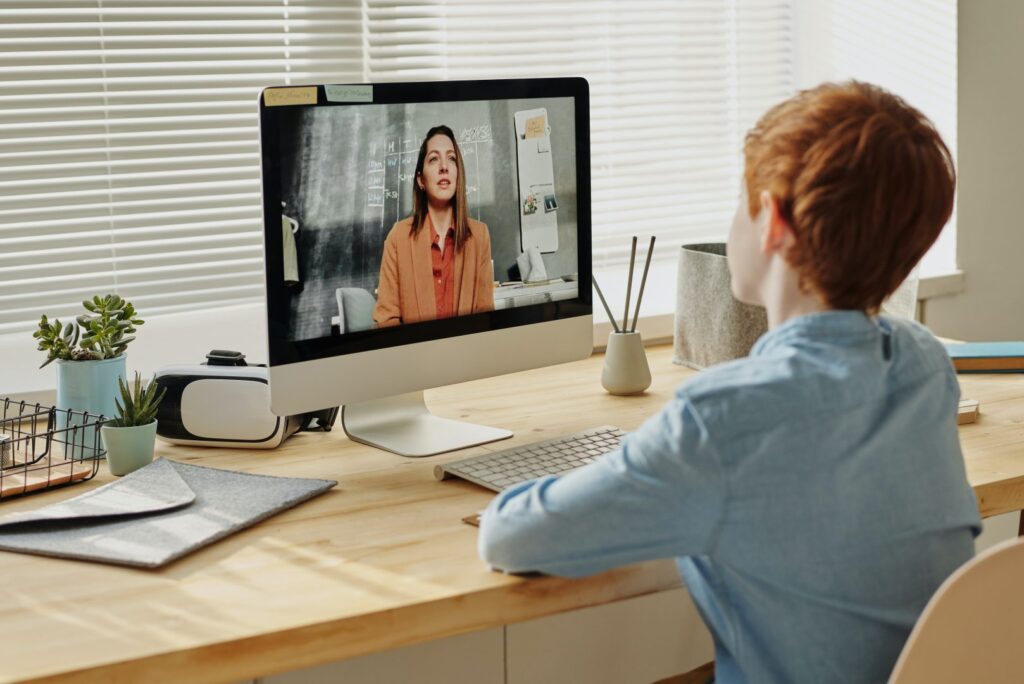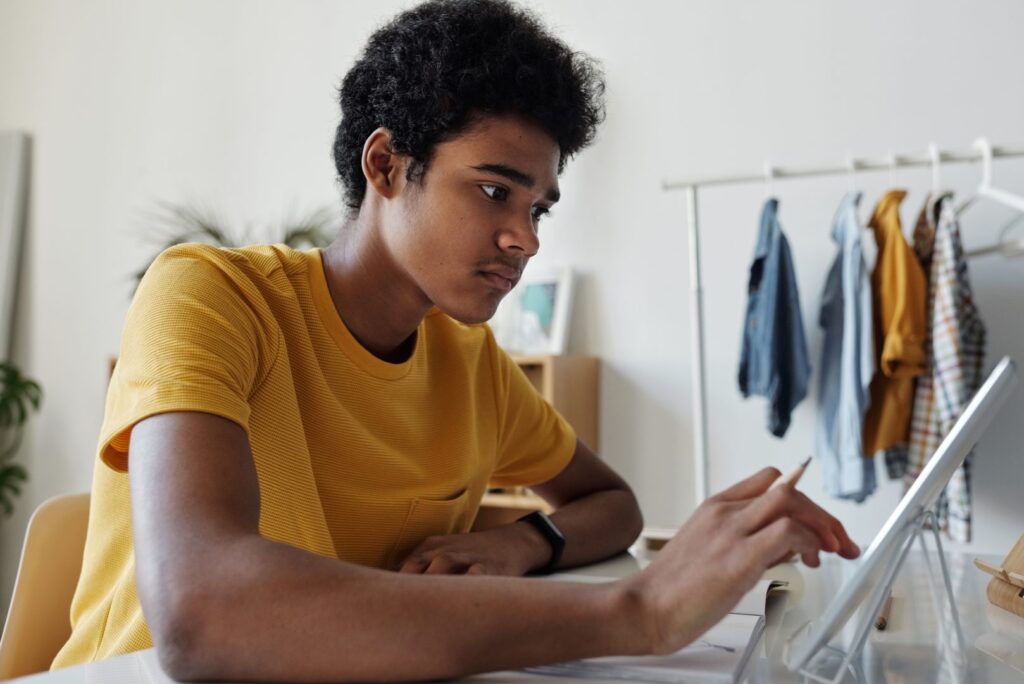Education is a process that allows our kids to gain knowledge and qualified skills, develop their personalities, and become future professionals.
All kids, no matter their social status, religion, or finance, have a right to proper education. Education is a tool for our kids to improve their lives and well-being. Solid-educated kids can face future challenges and targets.
Kids can participate in either institutional education (in schools) or online education. Online education, also known as e-learning, is learning provided through the comfort of our screens.
Online classrooms are real-life classrooms but turned into virtual and interactive classes managed through tech devices.
Online education for kids is important because of the interactive character, the opportunity to learn fast, and the chance to express themselves.
Benefits of Online Education for Kids
Some families live far away from schools. So, if kids don’t want to waste hours just to go and come back from school, online education is a perfect solution.

Moreover, online classes are flexible and offer kids interactive lessons. For example, your kid can snack while learning. That isn’t the case in real schools.
Access to online education is easier and more effective. Studies even show that homeschooled kids perform better than others.
Lastly, if a celebrity is reading this text (and I hope someone is), your kid can avoid all the unpleasant paparazzi with homeschooling.
Best Online Education Tools and Platforms for Kids
In the following paragraphs, we’ll go over the best online education tools and platforms for kids.
· Learning Management Systems
Learning management systems are programs that integrate all aspects of education. Parents should pick an LMS according to its pricing and features. The best learning management systems are TalentLMS, iSpring Learn, Skillcast LMS, etc.
· Educational Apps and Software
Educational apps and software offer kids the opportunity to learn creatively and interactively. The best educational apps and software include Khan Academy, Duolingo, Scratch, etc.
· Virtual Classrooms
Virtual classrooms allow kids to be in a classroom, without actually being in a classroom. Many apps like Zoom and Microsoft Teams are great programs that allow kids to learn through virtual classrooms.
· Online Tutoring Platforms
Online tutoring platforms offer kids in-depth tutorials for specific academic topics.

· MOOCs
Massive open online courses (MOOCs) allow kids to access information easily online.
Online Learning vs. Traditional Learning: Which is Better for Kids?
Traditional learning is attached to a classroom and kids interact face-to-face with their peers and teachers. On the other hand, online learning is situated in kids’ homes and based on virtual interaction.
Traditional learning methods develop kids’ social and communication skills and build social confidence. On another notice, online learning provides low schooling costs, flexibility, convenience, and the ability for kids to learn at their own pace and expand their tech skills.
A combination of traditional and online learning is called hybrid learning, and it allows kids to study according to their needs and conditions.
Hybrid learning, as a mix of online and traditional learning methods, is the best solution for kids interested in expanding their knowledge.
Challenges of Online Learning for Kids
Online learning has a lot of disadvantages too. Firstly, kids might not have access to proper equipment. Moreover, they have limited social interaction, so they resort to tech for entertainment as well.

Kids often get the chance to use tech for games, videos, and such while learning online because of the lack of supervision from parents. Shortly, homeschooling allows kids to skip classes and socialization.
Online Education and Child Development
While learning online, kids advance their tech skills, better their hand-eye coordination, and develop their cognitive abilities.
But online education can take a toll on kids’ social and emotional development, which can lead to depression, social anxiety, and such.
Moreover, kids isolated from others can’t develop cultural awareness and have a bigger chance of developing a discriminatory mindset.
Lastly, a positive side of online education is that it develops kids’ critical thinking and problem-solving skills.
Parental Role in Online Education
Kids can feel more comfortable if they learn online. They can choose to skip classes, be distracted, and not interact with teachers.

Therefore parents must pay attention to their kids’ behavior while learning online, and provide a solid internet connection and a quiet room.
Open discussion with your kids can help them understand the importance of online learning. Teach them to be responsible and honest students and value the learning process.
The Future of Online Education for Kids
Technology evolves more and more every day. So, online education is a future-proof way of gaining knowledge.
Moreover, the number of people that lose trust in the educational system and institutional schools grows daily.
Many companies also start to value online courses and academies more than institutional degrees. And lastly, every career nowadays requires constant education and upgrading the specter of knowledge.
Fortunately, we can’t stay in school our whole life, but we can resort to online education for broadening our knowledge.
Conclusion
The quarantine proved that online education can be a suitable way for gaining knowledge. Moreover, according to the National Home Education Research Institute, the percentage of online-educated students grows every year.
Many important and genius people like Abraham Lincoln, Thomas Edison, Wolfgang Amadeus Mozart, Agatha Christie, and even Justin Bieber have been homeschooled.

So, if your kids feel more comfortable at home, don’t want to travel every day, or want to have a flexible learning experience, online education is perfect.
Who knows, maybe your kid will grow into a successful and impactful person without ever stepping foot in a school hallway.
FAQs
How does online education affect kids’ social development?
Online education causes socially isolated kids because they are at home and don’t interact with peers.
What types of online education tools and platforms are available for kids?
Some online tools and platforms for kids are Microsoft Teams, Zoom, Powerpoint, Word, Excel, Canva, etc.
Can online education be as effective as traditional learning methods?
Yes, it can. It depends on kids’ personalities, future goals, achievements, ambitions, learning skills, and abilities. A kid willing to learn doesn’t need perfect conditions, only ambition and love for learning.
What is the best age to start online education for kids?
There is no strict limit for when kids should start with online education. It depends on their ability to learn and their computer skills.
Sometimes kids can be pressured to learn online, for example, during the pandemic period, or if they are socially anxious, victims of cyberbullying, and live far from school.
ALSO READ: The Benefits of Digital Detox for Your Child’s Mental Health







